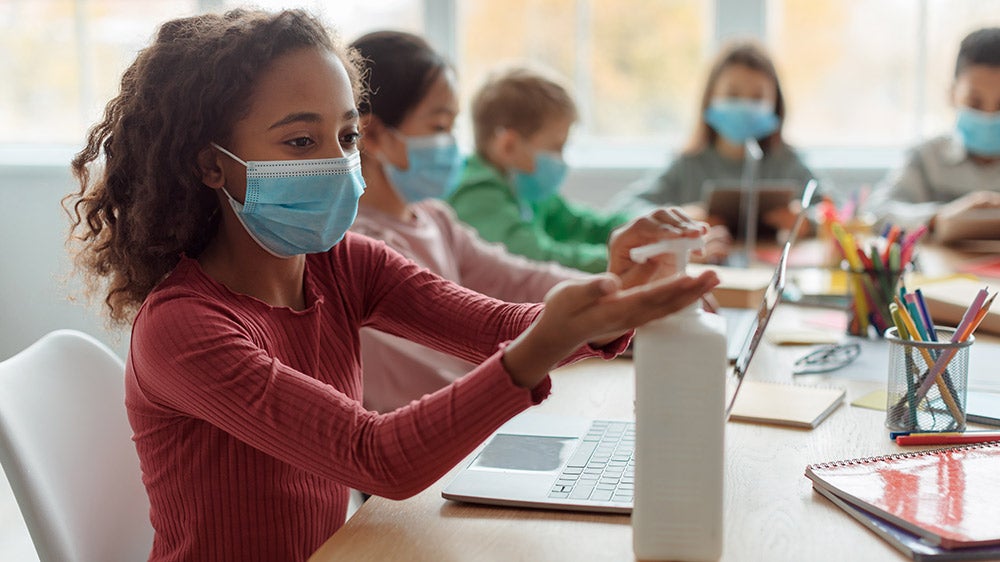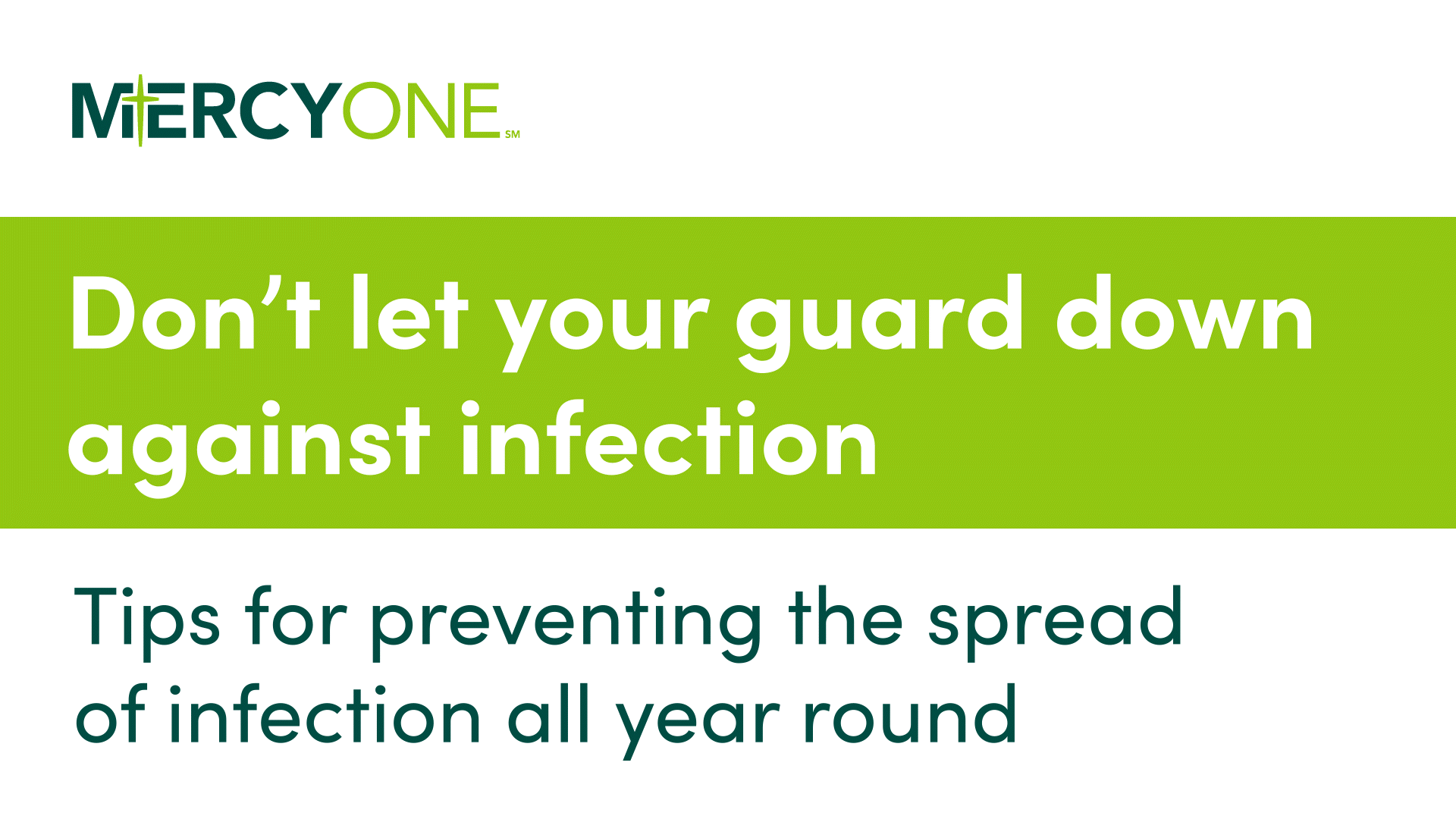Don't let your guard down against infection
April 5, 2022
Keeping our communities healthy includes staying on top of best practices to slow and stop the spread of infection. Even though COVID-19 cases are slowing, there are still many different types of viruses and bacteria spread every day that can interrupt your health and daily life. Keep the health of you and your family at its best. Follow some of these tips for preventing the spread of infection all year round.
Masking/Facial covering
Masking may not be required but can be very helpful if you have cold or flu-like symptoms and want to prevent spreading it to anyone else.
- If you are stick with a cough, fever or more severe symptoms, stay home.
- If you are getting over a cold or have minor symptoms, wear a mask.
Just like before the world was exposed to COVID-19, covering your mouth when you sneeze or cough is not only polite and best practice for personal cleanliness, but vital to stopping the spread of the germs you may be carrying. Use the crook of your elbow, your shoulder or sleeve instead of your hand.
Handwashing
Hand hygiene has been and remains an important tool to stop the spread of germs and infection. Washing your hands before and after a meal, before and after visiting others, after using the bathroom and leaving public areas greatly prevents infection.
- Use an alcohol-based hand sanitizer before and after leaving a public area
- Wash your hands for at least 20 seconds frequently (after using the bathroom, sneezing, coughing etc.)
Keep your distance
If you are experiencing any cold or flu-like symptoms, keeping your physical distance from others will help prevent the spread of illness. Handshakes are a polite greeting-- but if you are feeling sick, it’s okay to politely pass. Cold viruses and the flu are commonly transferred via hand-to-hand contact. Refrain from shaking others’ hands if you are experiencing symptoms. Consider some of the following no-contact greetings:
- Waving
- Elbow bump
- “Air” High-Five
- Foot bump

